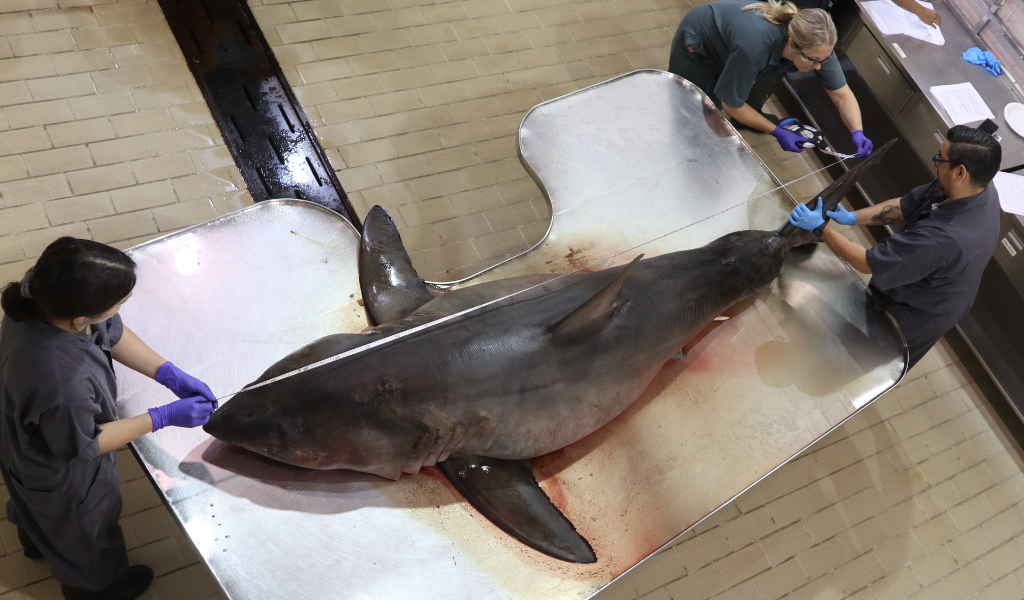Atlantic Veterinary College performs great white shark necropsy for first time

Dr. Megan Jones, of the Canadian Wildlife Health Cooperative at the Atlantic Veterinary College (AVC), couldn’t believe she had a great white shark on her post-mortem table, prepped for a necropsy—the first white shark to be necropsied at AVC.
Discovered on Greenwich Beach on the north shore of Prince Edward Island on August 7, the shark weighed almost 500 pounds and measured close to nine feet.
“I haven’t done a big shark like this. It’s really unusual for us,” Dr. Jones said. “It’s always exciting to find out about a new species, and because it’s an endangered species and we don’t know much about them. It’s also important to do the post-mortem thoroughly and collect all the data we can.”
The shark was found by beachgoers at Greenwich National Park, who jumped into action, alerting the Marine Animal Response Society. With help from Parks Canada staff, the shark was transported to AVC for the necropsy. The quick action meant the shark’s carcass was fresh, which gave Dr. Jones and her team optimum conditions to try to determine a cause of death.
Dr. Amanda Clark, Dr. Maricruz Guevara, and several CWHC and AVC Diagnostic Services personnel joined Dr. Jones, taking detailed measurements, and collecting samples. They had two goals in mind: find out what happened to the ocean predator and understand more about the species.
Through the post-mortem, they found the shark was a very large, seemingly healthy juvenile male. Now Dr. Jones and her team are determined to dig deeper to solve the mystery of what happened to cause it to die in the North Atlantic.
“There were no signs of significant injuries, no signs of trauma, and no evidence of fishing entanglement. We could see that its liver was in good condition, and the animal was well fed. So now we need to look at the tissue samples under the microscope and look more closely at other causes of death.”
While the first great white shark necropsy at AVC was exciting for Dr. Jones at first, her excitement has turned to concern as she waits for the results to find out what killed this endangered species off the shores of PEI.
“And that could take several weeks, but I’m really anxious to learn more about the shark.”